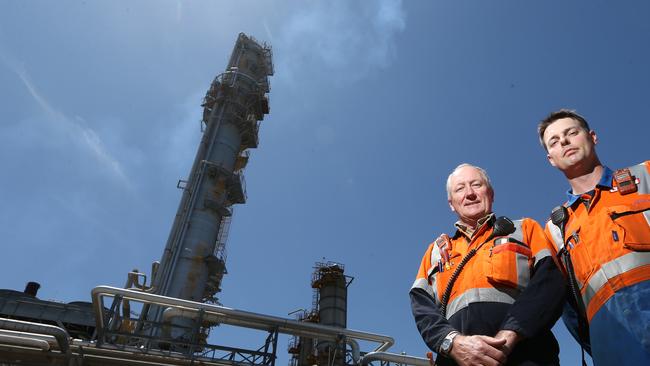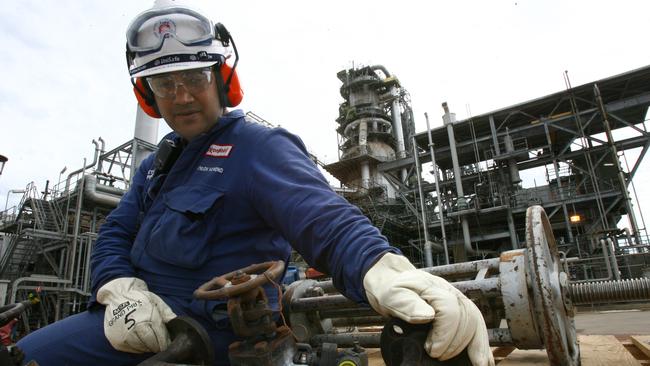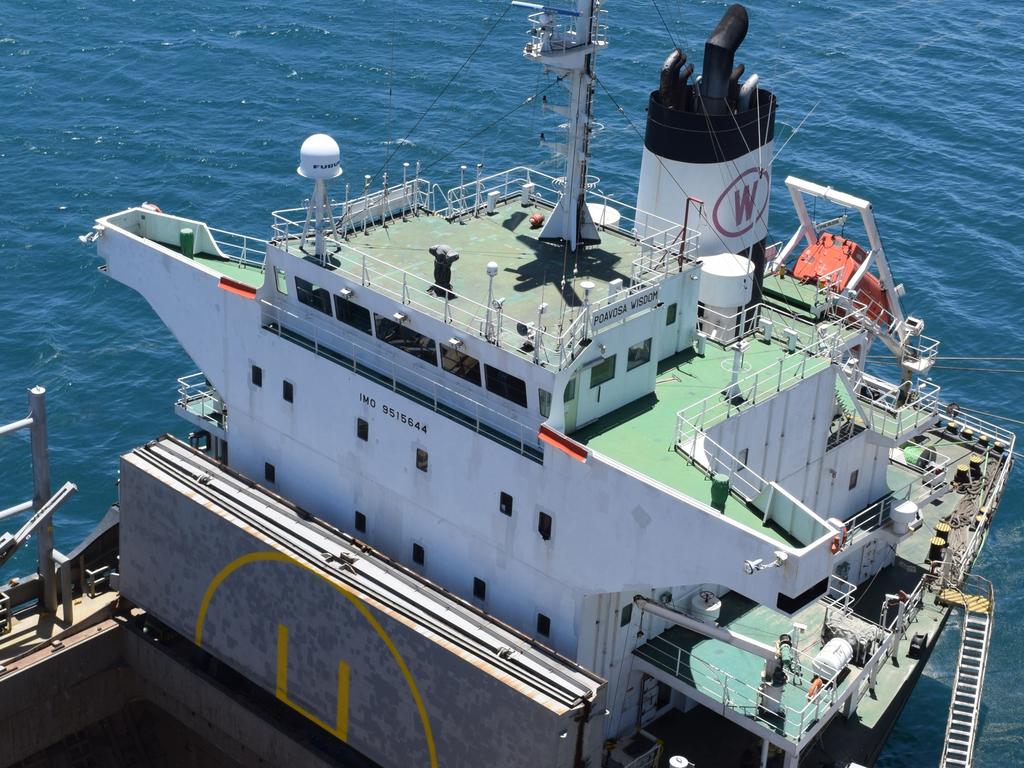Exxon shutters Altona refinery
ExxonMobil confirms Melbourne’s Altona refinery will be shut, putting up to 300 jobs at risk, in new blow to the industry.

ExxonMobil has confirmed Melbourne’s Altona refinery will be shut after nearly 75 years of operation with up to 300 jobs in peril, marking the latest blow to the nation’s refinery industry.
The refinery will be converted to an import terminal with the decision likely to hike concerns about Australia’s fuel security with the plant producing half of Victoria’s refined fuel needs.
“ExxonMobil said today that the Altona refinery is no longer considered economically viable and will be converted to an import terminal, which will ensure ongoing, reliable fuel supply for Victoria,” Exxon said in a statement, which confirmed an earlier report in The Australian.
An extensive review of its viability was carried out focusing on the competitive supply of products into Australia, declining domestic crude oil production, future capital investments and the impacts of these factors on operating earnings.
“We are grateful for the tremendous efforts by our employees to improve the viability of the operation,” said Nathan Fay, chairman of ExxonMobil Australia. “We extend our thanks to the federal government for the significant support offered to Altona and other refineries. Our decision to convert our facility to a terminal is not a reflection of those efforts.”
Energy Minister Angus Taylor said he was extremely disappointed at ExxonMobil’s decision after the Morrison government had created a $2bn subsidy package designed to ensure the nation’s three remaining refineries stayed open.
“ExxonMobil’s decision to close its Altona refinery in Victoria is extremely disappointing,” Mr Taylor said.
“The Australian government expects ExxonMobil will provide whatever support is required to assist workers and the community during this difficult time. We will work with the Victorian government to ensure this occurs. ExxonMobil has made clear that the impacts of COVID-19, declining crude production and other commercial factors have significantly impacted their earnings, leading to today’s decision.”
Exxon said the refinery will remain operating while transition work to an import terminal is carried out.
Unions said the closure reflected the lack of a clear federal government plan for the future of energy supply and manufacturing in Australia.
“Australia has witnessed several significant closures in advanced manufacturing over the past twelve months across construction, pharmaceuticals and energy. This comes at a time when global supply chains have been put under pressure by the COVID-19 pandemic, signalling a strong need for Australia to strengthen its domestic advanced manufacturing capabilities,”
United Workers Union national secretary Tim Kennedy said.
“However in the absence of a clear plan for the future of energy supply and manufacturing in Australia, many multinational corporations are pulling out of Australia.”

Exxon warned in September the future of the plant was perilous given it was trading at a loss after being hit from falling demand due to the COVID-19 pandemic, Victoria’s prolonged shutdown last year and tough conditions hitting much of the global industry.
There were hopes a Morrison government rescue package would provide a lifeline for Australia’s three remaining refineries after BP announced in October it would close its Kwinana refinery in Western Australia.
But while Viva Energy announced plans to take up the interim subsidy to help safeguard its Geelong unit in Victoria, ExxonMobil only committed to evaluating the package while rival Ampol is still considering the future of its Lytton refinery in Brisbane.
Exxon’s Altona facility produces half of Victoria’s refined fuel needs with supply of up to 14.5m litres of refined products per day, enough to fill more than 330,000 cars.
The energy operator issued a downbeat assessment of the refining industry from its US headquarters less than a week ago, signalling the end of its Altona facility was in sight.
Exxon chief executive Darren Woods said the global refining industry was still struggling.
“If you look at the industry as a whole across the globe, where margins are at, it’s not a sustainable position just because of the losses that are accruing,” Mr Woods told investors after its fourth quarter earnings call.
“These are commodity businesses and if you take a price that goes below the marginal cost of supply, it’s going to end up costing the industry as a whole and eventually players will rationalise and drop out.”
However, the oil giant recorded a $250m writedown on its Australian downstream business in its 2019 accounts with some of that charge reflecting the lower value of Altona.
The industry has been battered amid soft margins, high costs and plunging demand due to COVID-19 lockdowns.
Four refineries including BP’s Kwinana have shut since 2012 and the remaining plants now produce less than half of the country’s fuel needs, with the bulk of supplies imported from bigger facilities in Singapore, South Korea and Japan.
BP blamed a regional oversupply of capacity and sustained low refining margins for its decision in late October to close Kwinana, with Ampol, Viva and Exxon stating the future of their operations also remain highly uncertain amid tough conditions for the industry.
Kwinana is due to shut within six months with 600 manufacturing workers to lose their jobs, ratcheting up concerns over the loss of thousands of jobs in Australia’s energy industry this year amid a sustained economic fallout from the COVID-19 pandemic which has knocked demand for fuel sideways.
Refiners will receive a minimum payment of 1c per litre for production of petrol, diesel and jet fuel under the federal government accelerated subsidy designed to bridge the gap until a long-term package kicks in by July 1, 2021.
Exxon has endured a rocky few years in Australia. It canned the multi billion dollar sale of its 50 per cent stake in the Bass Strait gas fields offshore Victoria with prices from potential bidders thought to have fallen well short of expectations.
It also ditched a proposed LNG import plant in Victoria after studying the idea as a solution for the east coast gas sector.




To join the conversation, please log in. Don't have an account? Register
Join the conversation, you are commenting as Logout